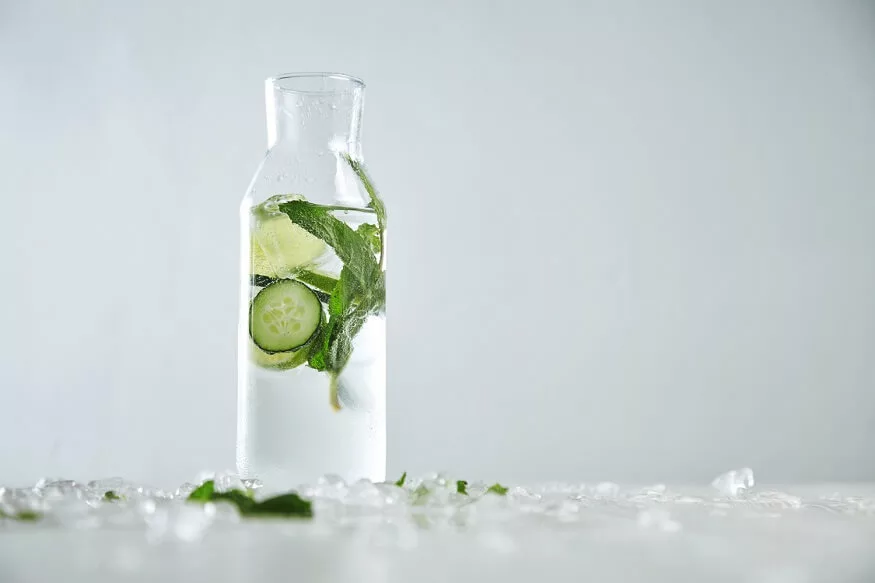Welcoming a newborn into the family brings immense joy, but it also comes with a unique set of challenges, particularly when it comes to soothing common discomforts like colic and gas. One remedy that has been a go-to for many parents is gripe water. However, the question of its safety for babies and the potential side effects looms large. In this comprehensive article, we will delve into the world of gripe water for infants, exploring its usage, potential side effects, and alternative solutions.
What is Gripe Water?
Gripe water, a traditional remedy with historical roots dating back to the 19th century, is a liquid supplement often used to alleviate common digestive issues in infants. The typical composition of gripe water includes water, herbs such as fennel, ginger, chamomile, and a sweetener like sugar. Some formulations may also contain sodium bicarbonate or alcohol. Gripe water is used for:
- Alleviation of Colic and Gas:
One of the primary reasons parents turn to gripe water is to provide relief from colic and gas in infants. The combination of herbs like fennel and ginger is believed to have natural soothing properties that can help ease digestive discomfort.
- Calming Effect on Fussy Babies:
Gripe water is often used to calm fussy or irritable babies. The mild and sweet taste of gripe water may provide comfort to infants and help settle them during periods of fussiness.
- Relief from Teething Discomfort:
Some gripe water formulations include ingredients like chamomile, which is believed to have calming properties. This can be particularly useful for providing relief to babies experiencing teething discomfort.
- Reduction of Hiccups:
Gripe water is sometimes administered to alleviate hiccups in infants. The herbal ingredients in gripe water may help relax the diaphragm and reduce the frequency and intensity of hiccups.
Also Read: Understanding Colic in Infants: Causes, Symptoms, And Remedies
Gripe Water: An Overview of Usage
Parents often turn to gripe water as a natural and seemingly gentle solution to soothe their baby’s tummy troubles. The herbs in gripe water are believed to have calming and digestive properties, making it a popular choice among caregivers.
Gripe water is commonly administered to infants using a dropper or a small spoon. The dosage and frequency vary among products, and it’s crucial for parents to adhere strictly to the recommended guidelines. Overuse or misuse of gripe water can potentially lead to unwanted side effects.
Parents often turn to gripe water when faced with a colicky baby or when the infant is experiencing digestive discomfort. It is crucial to note that gripe water is not a cure for underlying medical conditions, and persistent symptoms should prompt a visit to the healthcare provider for a thorough examination.
When incorporating gripe water into a baby’s routine, parents should monitor for any signs of allergic reactions or adverse effects. If there are concerns about the baby’s reaction to the gripe water, discontinuation is advised, and professional medical advice should be sought.
Is Gripe Water Safe For Babies?
The safety of gripe water has been a subject of debate among parents and healthcare professionals. While many parents vouch for its efficacy in calming a fussy baby, the medical community remains cautious due to variations in formulations and the potential for adverse reactions.
The safety of gripe water largely depends on the specific ingredients present in the formulation. Traditional gripe water, containing natural herbs like fennel and ginger, is generally considered safe in moderation. However, caution is warranted when it comes to formulations containing additives such as alcohol or sodium bicarbonate, as these can pose health risks for infants.
Health experts recommend consulting with a paediatrician before introducing any new supplement or remedy to a baby’s routine. This is particularly important for infants with pre-existing medical conditions or those taking prescribed medications. The paediatrician can assess the individual needs of the baby and provide personalised guidance on whether gripe water is a suitable option.
Also Read: Sleep Regression in Infants – Signs, Causes and What to Do
Gripe Water for Infants: Potential Side Effects
Despite its popularity, gripe water is not without its potential side effects, and parents should be aware of these before administering it to their babies. Some common side effects associated with gripe water for infants include:
- Allergic Reactions:
Babies can be sensitive to certain herbs or other ingredients present in gripe water, leading to allergic reactions. It’s crucial to monitor for any signs of allergies, such as rash, swelling, or difficulty breathing.
- Upset Stomach:
Ironically, gripe water can sometimes cause an upset stomach in infants. This may manifest as increased gas, bloating, or changes in bowel movements.
- Changes in Sleep Patterns:
Some parents report that gripe water can cause drowsiness in babies. While this might be seen as a positive effect, it’s important to be mindful of any changes in sleep patterns and ensure that the baby is still alert and responsive.
Also Read: Baby Gasping for Air – Causes, Symptoms, And Ways to Reduce It
Alternatives for Gripe Water for Babies
Given the concerns surrounding certain gripe water formulations, parents may explore alternative methods to alleviate common infant discomforts. Here are some alternatives that are considered safe and are often recommended by healthcare professionals:
1. Probiotics
Probiotics are beneficial bacteria that promote a healthy digestive system. They can be particularly beneficial for infants experiencing colic or digestive issues. Probiotic supplements designed specifically for infants are available, and their usage should be discussed with a healthcare provider.
2. Massage
Gentle tummy massages can help relieve gas and promote relaxation in infants. Parents can use a gentle, circular motion on the baby’s abdomen, being mindful of the baby’s cues for comfort.
3. Warm Baths
A warm bath can have a soothing effect on a fussy baby. The warm water can help relax the muscles and alleviate tension, providing relief from discomfort.
4. Adjusting Feeding Techniques
For babies who are bottle-fed, adjusting the feeding technique may help reduce the intake of air, which can contribute to gas and colic. Ensuring a proper latch during breastfeeding is essential to prevent excessive air ingestion.
5. Consulting a Paediatrician
When in doubt or if symptoms persist, seeking guidance from a paediatrician is crucial. A healthcare professional can conduct a thorough examination, identify any underlying issues, and provide tailored advice based on the baby’s individual needs.
Also Read: Tips to Help Parents Adjust to Baby’s Changes
Parents should exercise caution, carefully choosing gripe water products that are free from potentially harmful ingredients. Additionally, EuroSchool recommends consulting with healthcare professionals for a holistic approach to addressing common infant discomforts.










